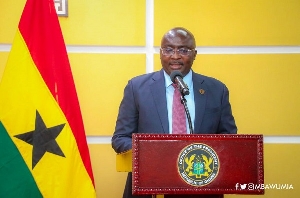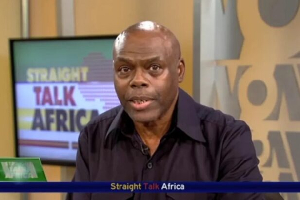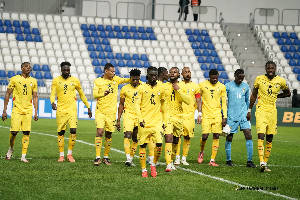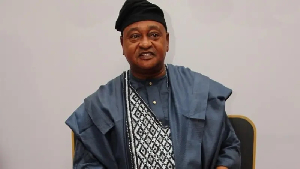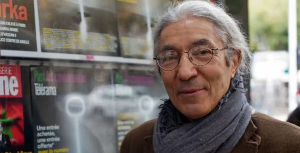Vice President Dr. Mahamudu Bawumia has announced an ambitious plan to add 2,000 megawatts (MW) of solar power in the first four years of his government.
The plan, totalling nearly half of the current electricity consumption, Dr. Bawumia explains, is driven by a dedication to easing the financial strain on businesses struggling with high energy tariffs.
He made the announcement during engagement with members of the Ghana Union of Traders’ Association (GUTA) in Accra. The Vice President, who doubles as the flagbearer of the New Patriotic Party (NPP), underscored the importance of solar energy in cutting expenses and promoting economic development.
“With this initiative, we aim to significantly reduce the escalating costs of power, particularly for our businesses, thereby enhancing their competitiveness in response to pleas from traders for his administration to address the cost of power,” Dr. Bawumia stated.
The plan, to be implemented should Ghanaians elect him as their next President, aims to tackle the immediate concerns of businesses while also aligning with broader objectives of shifting from fossil fuels to sustainable energy solutions.
In the country’s 2070 ambition to achieve net zero emissions under the National Energy Transition Framework (NETF), increased renewable energy penetration remains a crucial component. It also details plan to convert thermal plants to natural gas and the integration of nuclear power into the energy mix of the country.
Dr. Robert Sogbadji, Deputy Director of Power (Nuclear and Alternative Energy) and Coordinator of the Energy Transition Committee at the Ministry of Energy, has revealed that Ghana’s renewable energy currently accounts for 33 percent of its energy mix. This figure includes large hydropower sources.
However, he added that in terms of modern renewables such as solar and wind, it constitutes 3.1 percent with a target to achieve 10 percent installed capacity by 2030.
Dr. Bawumia acknowledged that the cost of power in the country is among the highest within the sub-region, and also far higher than countries like the United States of America (USA).
It is against this background that he said he is committed to undertaking the solar initiative, which would ultimately lead to reduced cost of electricity.
Additionally, in response to announcing his readiness to operate a ‘lean government’ which will significantly reduce public expenditure, Dr. Bawumia said plans to transfer several aspects of the government’s work to the private sector.
This, he noted, will help to reduce government’s borrowing, bringing down interest rates and others which are part of the underlying effects resulting from borrowing.
Additionally, he outlined plans to further reform the country’s ports, an area that traders – especially importers – complain about due to the high cost of duty charged on imports, which is cited as a reason for the escalating prices of goods in the markets.
He stated that import duties will be compared to charges in neighbouring countries, particularly Togo, which has become the preferred destination for many local importers due to its lower import charges.
Additionally, he noted that this approach will eliminate the incentive to use alternative ports for importing goods and smuggling.
Dr. Joseph Obeng, President of GUTA, expressed concern that political parties have traditionally imposed their manifestoes on the people without genuinely considering their concerns and aspirations. He emphasised that this one-sided approach has created a gap between the government and the governed, impeding accountability and trust in the political process.
He urged all political parties to actively seek and incorporate the inputs, concerns and other contributions of the people into their manifestoes.
“By doing so, we can promote greater accountability, transparency and inclusivity in our democracy, ensuring that the voices of the people are heard and respected,” he said.
He acknowledged the efforts of the NPP in seeking the inputs of GUTA and its members into the party’s manifesto for the upcoming elections.
Among other issues, members of GUTA took turns to interact and inquire about the Vice President’s proposed policies to address the challenges faced by traders and Ghanaians as a whole.
Business News of Tuesday, 9 April 2024
Source: thebftonline.com

